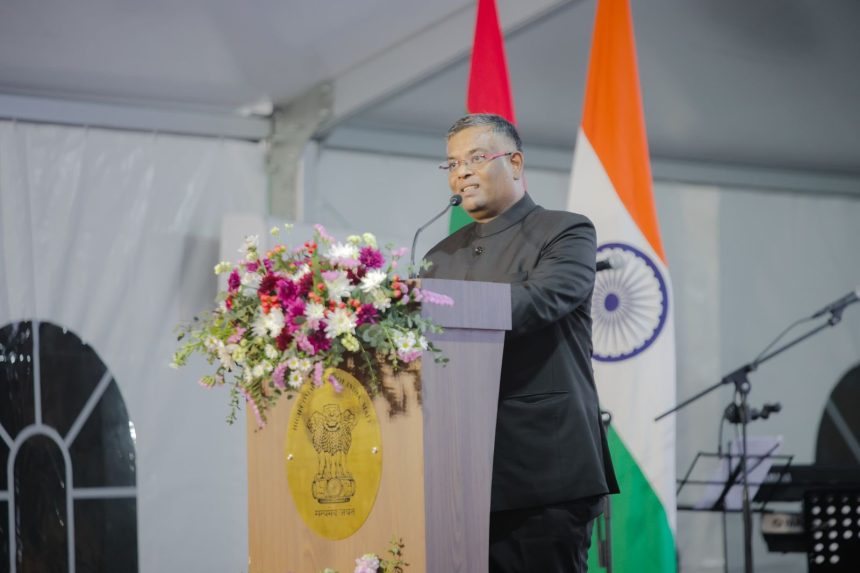India’s diplomatic mission in Malé has welcomed the strengthening of Maldives’ foreign exchange (FX) reserves, attributing much of the improvement to a landmark $400 million currency swap provided by the Reserve Bank of India in October 2024. This decisive move, the High Commission noted, “alleviated imminent external liquidity strains,” echoing assessments by global credit agency Fitch .
Fitch Ratings affirmed the Maldives’ sovereign rating at ‘CC’ on June 12, 2025, citing the nearly 130 percent rise in reserves—from a historic low of $371 million earlier this year to approximately $856 million by April—as “driven” by India’s swap, bolstered tourism earnings, and reforms under the Foreign Currency Act . The legislation mandates the conversion of 20% of foreign-currency tourism receipts into local currency—a policy that, together with rebounding tourism, reinforced reserves .
Beyond immediate fiscal relief, this financial linkage underscores a shared strategic vision: India’s support reflects both friendship and foresight. By extending the swap, India helped Maldives avoid deeper financial turbulence, reinforcing Malé’s liquidity buffer and promoting regional economic stability.
The Maldives’ government also reports progress. Tourist arrivals have climbed nearly 9.4% year-on-year, fueling Fitch’s forecast of 4.8% GDP growth in 2025, with expectations rising toward 6.0% in 2026 thanks to Velana International Airport’s new terminal . Malé remains optimistic about sustained reserve gains from combined tourism, legislative reform, and RBI-backed support.
This moment marks a positive milestone in India–Maldives relations. Though ties cooled under President Muizzu, shared economic interests have prompted a reset—one that benefits both nations. For the Maldives, the liquidity lifeline stabilises financial markets. For India, it reinforces its position as Maldives’ trusted partner—deepening regional influence through economic diplomacy.
What lies ahead:
Maldives must continue bolstering reserves, managing its projected fiscal deficit (~14.5% of GDP), and implementing long-term reforms.
India signals readiness to support further financial stability—whether via currency swaps, trade cooperation, or development lending.
In walking this cooperative path, both nations stand to gain. The Maldives secures vital economic stability. India, in turn, cements its reputation as a proactive regional anchor—bolstering a neighbour, strengthening cooperation, and safeguarding shared prosperity.




